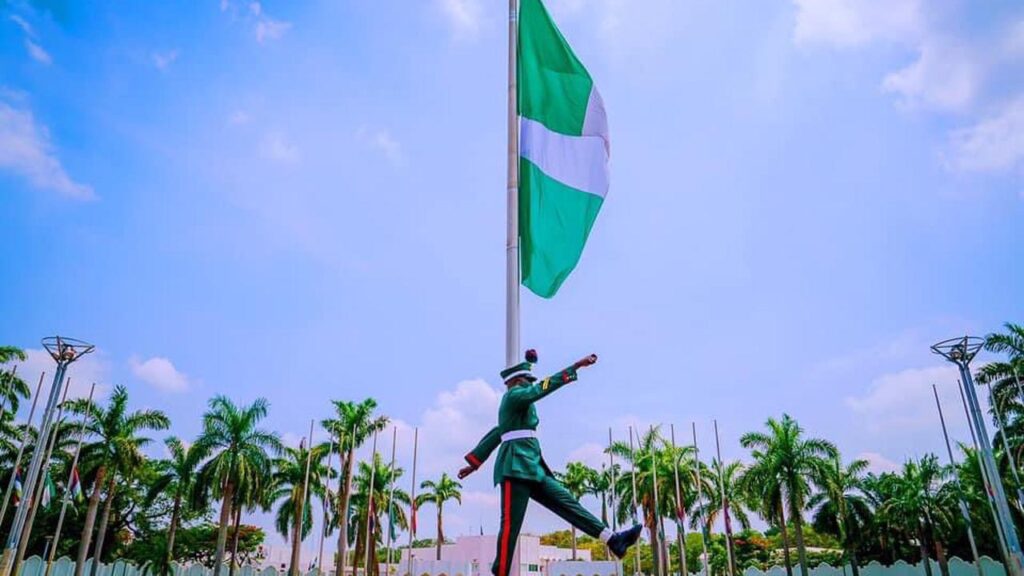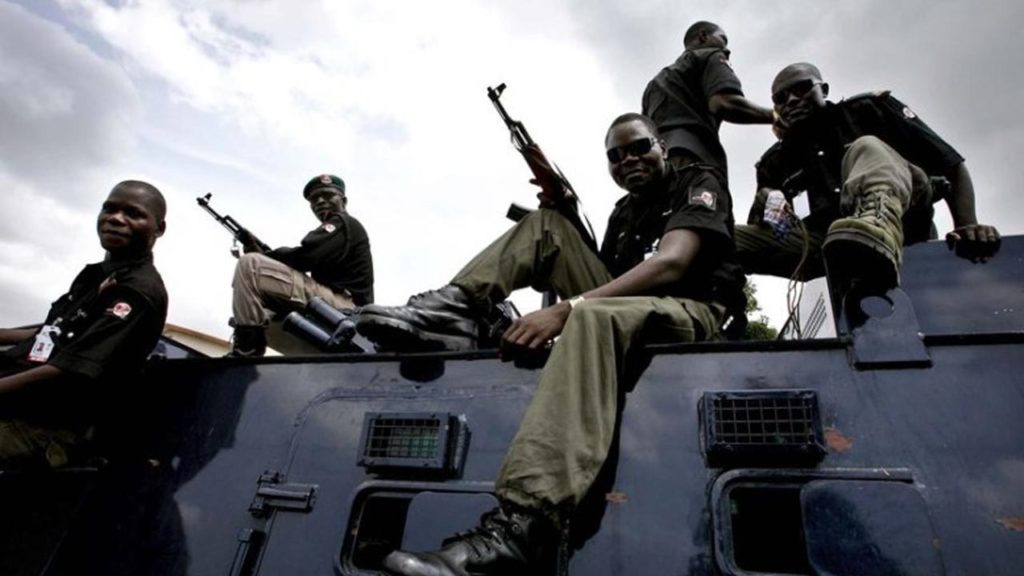
Within the first year of the Tinubu administration, at least three journalists were subjected to brute mishandling in the hands of law enforcers, a cold reminder of those dark years of military rule, when unelected authorities did not owe citizens explanation for their actions, and they had no patience to engage the rule of law.
On Wednesday, May 22, 2024 around 6pm, Madu Onuorah, publisher and editor-in-chief of Global Upfront, an online newspaper, was forcefully taken from his Lugbe, Abuja home, by men of the Nigeria Police. According to him, 10 of them barged into his residence in two Sienna buses. They had no time to waste. So, they took him unprepared, to Lugbe Police Station, where he spent the night, without a warrant or explanation of the reason for his arrest.
The following morning, they embarked on a road trip through Lokoja to Ebonyi, then Enugu, their final destination. He only got to know the reason for his maltreatment when the Commissioner of Police began to lecture him on how to do his job, simply because a certain Reverend sister wrote a petition in which she alleged defamation.
Onuorah was not allowed to take essentials for the trip, including his reading glasses. So, he dictated his statement and couldn’t read the details. He was released after 48 hours and counseled to reconcile with the petitioner. The police became the judge and counselor in a defamation petition.
On regular days, the police do not have resources to fuel vehicles for distress calls and pursue criminals. In this case, they have enough to traverse half of the country’s territorial space, just to attend to a private citizen’s private petition. Let the Inspector General of Police call for an investigation into this case of mental and physical assault on Onuorah.
The police must account for the resources they wasted on that reckless journey from Enugu to Abuja, and explain why they abandoned due process recommended for defamation matters. Unreported abuses of due process are happening all over the country to citizens who do not have access to the media.
If we assume Onuorah’s case could be isolated, that of Daniel Ojukwu, a reporter with the privately owned Foundation for Investigative Journalism (FIJ), defines a pattern. Ojukwu went missing on May 1, 2024 and his phone was switched off for 48 hours. His last outing was traced to Ikeja, a Lagos neighbourhood. He was later found at the familiar State Criminal Investigation Department (SCID), Panti Street, where he was kept on allegations of violating the Cybercrimes Act. The FIJ lawyer, Ridwan Oke, was reported to confirm this when he met Ojukwu at Panti.
A coalition of media and civil society efforts to rescue Ojukwu revealed that the reason he was hounded had nothing to do with cybercrime. It was gathered that the police, on behalf of people in high places, needed to harass him for a report he did in November 2023, which was a revelation on a certain Senior Special Assistant to the President on Sustainable Development Goals (SDGs), who allegedly transferred N145 million government money into a restaurant’s bank account. The sum was initially earmarked for a school project, but found its way into an account that was never processed and evaluated for building construction.
This particular story took months and trips to investigate, and it blew the lead off an underground movement of contract monies. The school project was hard to trace, because a maze of convoluted addresses was deliberately tendered to confuse prying eyes.
The story should be celebrated by a government that is committed to fight corruption. It is a good lead for anti-corruption agencies to build on. But instead, the police were unleashed on the reporter. On May 5, Ojukwu was transferred to the police’s National Cybercrime Centre at Abuja. At the end of the day, the barrage of pressure from media bodies and the civil society forced his abductors to grudgingly put him off their hook.
The painful and unjust experience of another journalist, Segun Olatunji, an Editor with FirstNews online newspaper, in the hands of military enforcers is more harrowing and unacceptable in a democracy. It is a blight on this government. The story has been told repeatedly but it appears the people in government have forgotten that this is not a military regime. They haven’t shown any remorse.
As the story went, not less than 15 armed men, in two unmarked vehicles, invaded Olatunji’s abode in Lagos, where they roused and intimidated the neighbourhood in an unnecessary show of force. Instead of extending a formal invitation for the journalist to explain how he came about certain stories and charge him appropriately, if necessary, they manhandled and assaulted him.
They forced him out of his home in the presence of his family members without a warrant. There was no explanation of any sort. He was blindfolded and flown to Abuja, where they deposited him at some military underground for 14 days, where he was fed on poorly cooked food, and forced to make statements, just to break him.
As it turned out, the experiences of Olatunji and Ojukwu have some semblance. They published stories that some big men in the corridors of power are not comfortable with. These big men, some of them lawyers, know what due processes are all about when one needs to seek redress. But they do not want to be accountable to citizens who are the sovereign in a democracy. These people prefer to cut corners and avoid due process in matters of public procurement.

FIJ had earlier traced some unholy virement of resources from faraway University of Nigeria Teaching Hospital (UNTH), Enugu, to fund certain projects in Lagos in the name of constituency projects. FIJ had done earth-shaking reports on corruption in Customs, stories that ought to titillate government for more partnership in investigation.
But this government is not excited. There seems to be a systematic clampdown to harass and intimidate the media and every form of opposition. In place of robust debates to market policies and projects, this government has adopted propaganda and bullying as tools to market unwholesome policies.
There was no debate before this government imposed the fuel tax that has ruined the economy and turned citizens into beggars. There was no public discussion on the return of the obsolete and colonial national anthem. Irrespective of the spiritual connotations embedded in the old anthem and the sentiments it conjures in older people, younger Nigerians deserve some explanation.
Labour is asking people in government to explain in data form how they arrived at their version of N60,000 as new minimum wage. Government is unable to explain, but will rush to the Industrial Court to frustrate Labour from embarking on protests.
Tinubu promised to unleash prosperity in his renewed hope agenda. Instead, this government has unleashed poverty for ordinary citizens and better life for politicians in Abuja and in the 36 states. Subsidy money is flowing milk and honey for government, while the citizens are groaning.
The bullying tactics of this government are reminiscent of those unleashed by the military to silence the media. The media, alongside civil society and pro-democracy paid for this democracy. Each time the military abrogated the constitution and disbanded the legislature, the responsibility to hold government accountable fell on the media. It has been a natural responsibility for the media to demand accountability. That is not going to stop with this government.
And operatives of the Tinubu administration, who were a major part of that struggle know that the media do not lose a fight. There will be bruises but the truth must prevail. The truth is that this democracy of 25 years has failed the people and cut short their expectations. There is now a democratisation of corruption and impunity, worse than was recorded under military governments.
The civilian presidency has become a coven of dictatorship while state governors are worse than military administrators, in their reckless deployment of raw power. And the media must talk about it, whether people in government like it or not.
Government’s response to the assault on journalists through the Minister of Information and National Orientation, Mohammed Idris Malagi, failed to acknowledge a creeping pattern of repression and authoritarianism. At the event to mark the World Press Freedom Day on May 3, the minister scarcely alluded to “some challenges, especially in the last couple of weeks concerning one journalist who has had some problems with the security agencies. That problem has been solved or is being solved. I’m being reminded by someone today that there’s another one. We are also working to ensure that one is also resolved.”
Clearly, nothing was resolved because Onuorah’s case happened after the minister’s promise to resolve the other two. The road to resolution begins with proper acknowledgment and apologies and reprimand for officers and politicians who have become power drunk.
There are ominous signs, that as the administration settles into the second year, with unearned cravings for 2027, whereas citizens unable to reconcile their miserly existence with government’s amplified version of reality, there might be desperation to impose what has become a one-way agenda. The agenda is to capture all forms of opposition.
The task to sustain this democracy is more on the side of the politicians. Many who now prance the stage and consuming more than they deserve from the economy were nowhere to be found prior to 1999. We do not begrudge them, except to remind them that if they do not manage the ship of the state well to keep it from sinking, those at the rooftop are likely to get drowned first.
But it is better to keep the ship afloat. Let those who have ambitions to prosecute in 2027 first consider the survival of the struggling citizens. The people need to be alive and the media must be available to tell the story.













